![]() — หน้าแรก — เกาะติดข่าว
— หน้าแรก — เกาะติดข่าว
ข่าวเศรษฐกิจและธุรกิจประจำสัปดาห์
-
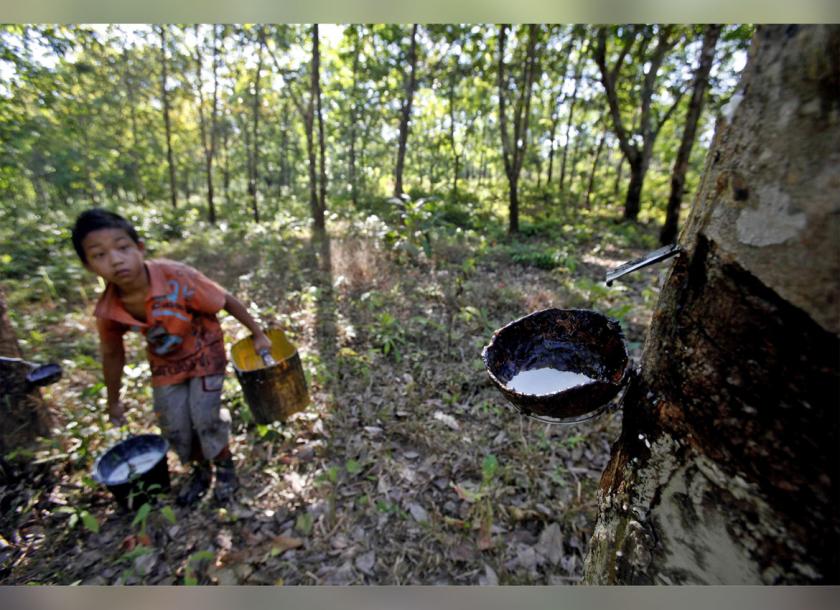
Tanintharyi landholders will be sued to remove villagers from disputed land under the recently amended land law, the Vacant, Fallow, Virgin (VFV) Land Management Law
Local government officials and companies are already using the recently amended land law to remove villagers from disputed land, according to lawyers in southern Myanmar. The Vacant, Fallow, Virgin (VFV) Land Management Law, amended on September 2018, set a March 11 deadline for anyone occupying or using “vacant, fallow, or virgin” land to apply for an official permit to use the land for 30 years or face eviction and up to two years in jail. But lawyers say lawsuits against villagers were launched before the cut-off date, and they fear many more cases will follow. Amendments to the VFV law, observers warn, could criminalise large numbers of smallholders in ethnic borderlands. It could also threaten the rights of people displaced by conflict who have problems accessing their land or local government offices. -
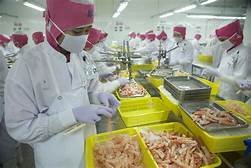
More investment supports needed for expansion in food processing industry to increase higher value added food products (U Aye Win, Chair of the Myanmar Food Processors and Exporters Association)
The Myanmar processed food industry needs more investment support in order to develop further, U Aye Win, chair of the Myanmar Food Processors and Exporters Association, told The Myanmar Times. Currently, Myanmar processes basic raw commodities such as rice, beans, maize and other agricultural products. Excess products are exported. However, the country also imports value-added processed foods such as canned or dairy products. In that light, Myanmar should increase its focus on manufacturing higher value food products, which will require funds from both local and foreign investors, U Aye Win said. Importantly, as the region moves closer towards implementing the ASEAN Economic Community, which envisions a single market and production base for Southeast Asia, micro, small and medium enterprises (MSME) in the Myanmar food industry will need investor support to compete, said U Zarni Maung Maung, managing director of REPASSA Myanmar. -

Tanintharyi villagers kept up fight against Thai operated tin mine in rural Dawei Township for breaching its environmental commitments despite Union Government is planning to extend their contract for another five years
A poor community cites decades of land dispossession and environmental degradation in their opposition to a Thai-operated tin mine in rural Dawei Township. ON THE BANKS of a narrow stream in rural Tanintharyi Region, a faded blue sign points the way to Myaung Phyo village. Walking into the village, Frontier could see dying coconut trees lining the main street – a symptom, locals said, of groundwater contamination. Myaung Phyo is located 43 kilometres from Dawei, the capital of Tanintharyi Region, in Myitta sub-township. Close by is the Heinda tin mine, one of Myanmar’s oldest. Local residents say that Myaung Phyo has borne the brunt of the extensive environmental damage caused by the mine. The dispute between the community and the mine operators goes back several decades. In 1983, about 500 village residents were relocated to make way for the mine. The only compensation they received were plots of land smaller than those they were forced to vacate, according to a report by the Dawei Pro Bono Lawyers Network. -
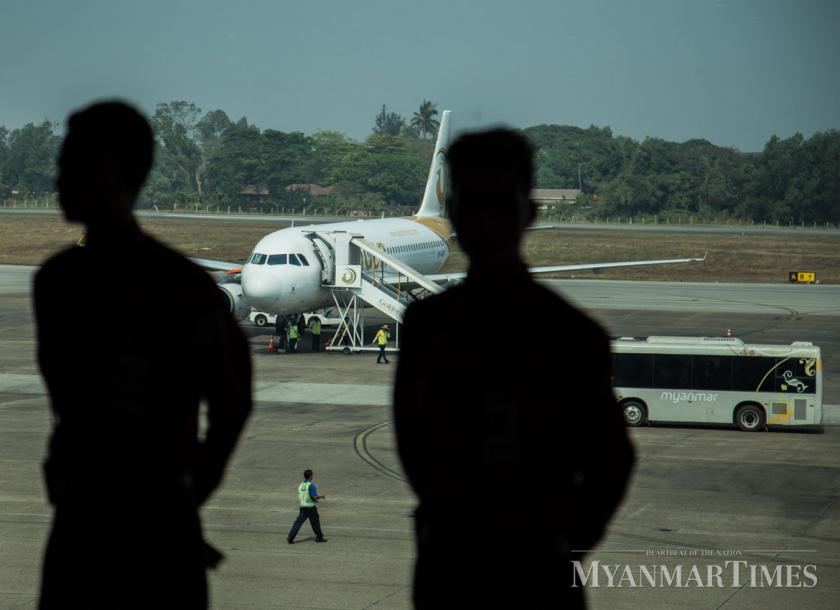
Domestic airlines need to merge or partnerships with foreign airlines in their operations to sustain themselves in the longer-term
There is a need for domestic airlines to merge or form partnerships with foreign airlines in order to sustain themselves in the longer-term. Stakeholders believe that the way forward for domestic airlines, which continue to be loss-making due to lower number of passengers and higher costs, would be to either merge their operations or form partnerships with foreign airlines. There has been a proliferation of domestic airlines ever since the country granted more licenses in 2011, with competition becoming more intense. At the same time, forming partnerships with foreign airlines have not been easy. Ticket prices remain high despite the larger number of domestic airlines and the more intense competition, putting off air travelers. Tour operators noted that domestic air tickets were far higher when compared to other countries, making it an obstacle for tourism. -
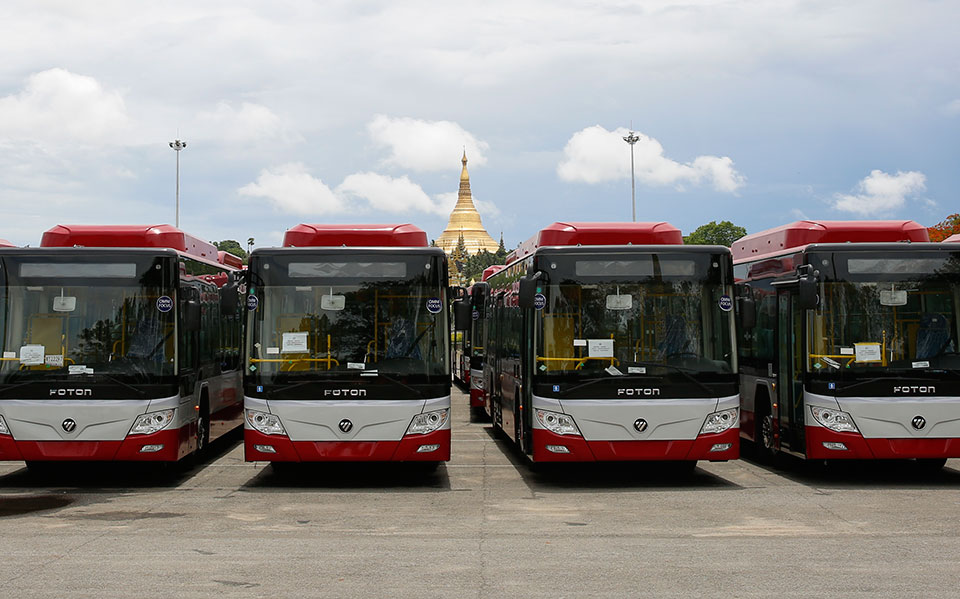
AYA bank is planning to sue bus companies owned by Ex-Dictator Ne Win’s grandsons for failing to repay the loans
Two grandsons of Myanmar’s ex-dictator Ne Win may be at risk of being sued by a local bank for failing to repay hire-purchase loans obtained to acquire buses for a transport company they own. The bus company, Omni Focus, and two of its affiliates—Central Yangon Network Company and Keen Support Company—took out a loan of 56 billion kyats (US$36.8 million) from AYA Bank in 2017 to buy 500 new buses to be operated by Yangon Bus Service (YBS). The loan was sought at the recommendation of Yangon Chief Minister U Phyo Min Thein. In a statement released on Friday, the bank said it is planning to sue the companies for failing to repay the loans. The bank said it had attempted to communicate with the companies for several months, including sending bank notices and legal notices requesting repayment, as per the bank’s procedures. -
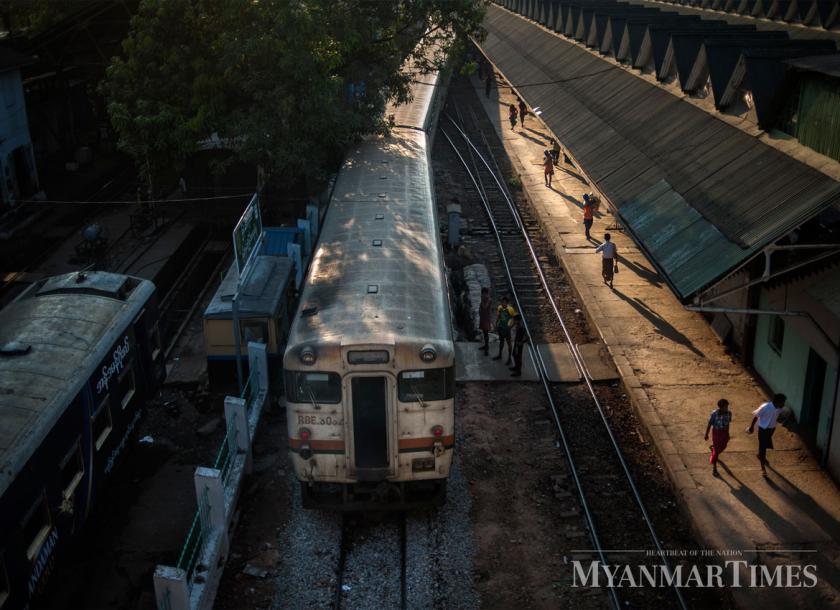
Myanmar government prioritized nine sectors covering infrastructure projects under China- Myanmar Economic Corridor
Myanmar is prioritising nine sectors covering infrastructure projects under the China-Myanmar Economic Corridor although more specific details as to which of the projects have been chosen remain under wraps. These sectors, part of the Myanmar Sustainable Development Plan, include electricity, road, bridge, telecommunication, basic construction, agriculture, transportation, research and technology. Union of Myanmar Federation of Chamber of Commerce and Industry (UMFCCI) deputy chair U Thein Han said that the nine prioritized sectors involve partnerships between Myanmar and Chinese firms. He was among a group of Myanmar private sector representatives who had followed government officials led by Minister for Planning and Finance U Soe Win to the second joint committee forum of the China-Myanmar Economic Corridor held in Kunming, China in late February. -
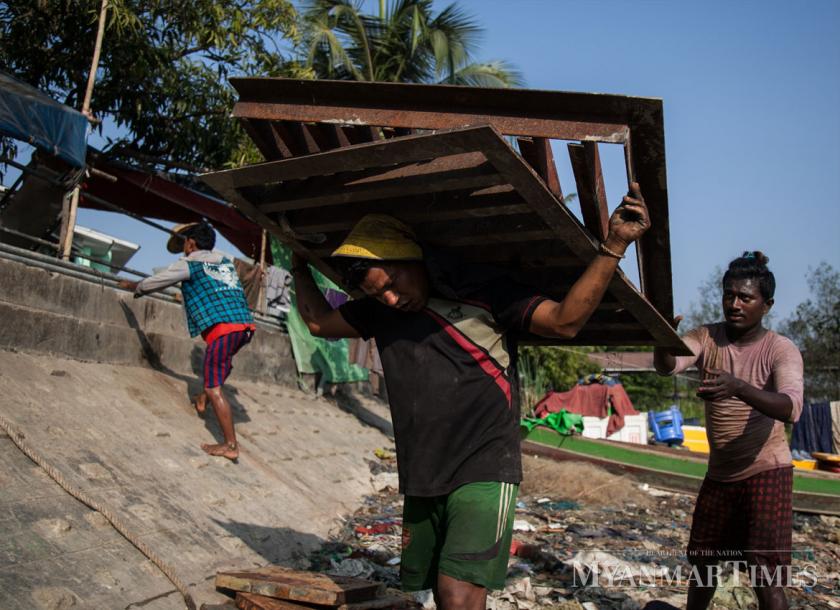
Fourth Australian Business in ASEAN survey finds private firms face hurdles in doing business in Myanmar
Red tape and access to skilled labour are significant constraints for businesses in Myanmar, according to a survey by the Australia – Asean Chamber of Commerce. Three-quarters of the respondents to the survey on Myanmar identified government bureaucracy as a significant hurdle while two-thirds identified access to skilled labour as a constraint. Respondents to the survey - the fourth Australian Business in Asean Survey – also noted weak law enforcement as a continuing challenge to doing business in the country. These three high-impact business challenges increased in 2019 compared to 2017. However, the survey showed that the political and currency conditions have become more stable. Office rentals, personal security and labour costs were also seen by respondents as less of a challenge. -
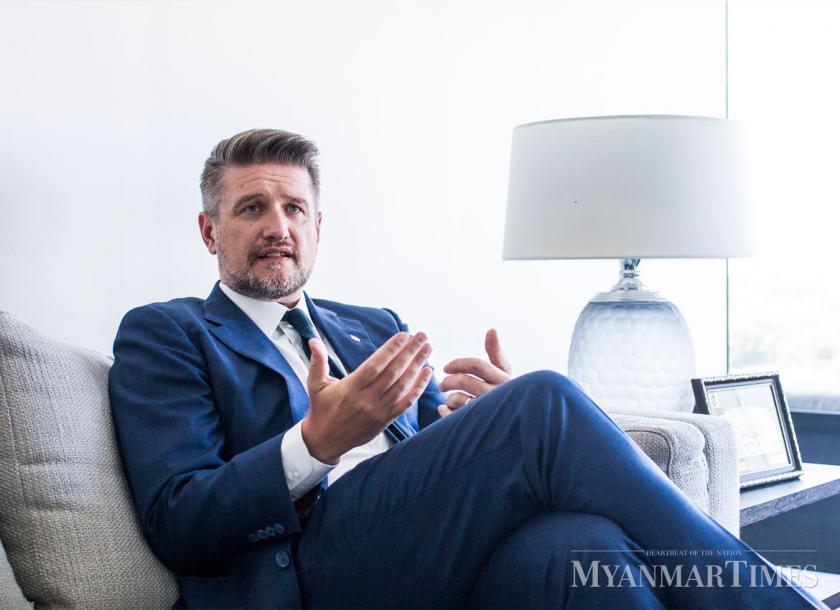
Yoma Bank will be focused on Small and Medium Enterprises (SMEs) loans and mortgages markets as CBM opened up for banking and financial service industry
With the Central Bank of Myanmar (CBM) having issues a slew of directives liberalising the Myanmar banking and financial sector over the past 24 months, chief executive Hal G Bosher is beginning to see positive opportunities for Yoma Bank in the years ahead. “The CBM has been implementing reforms to bolster confidence in the industry since 2017. This is a good thing as it will help strengthen the banking system in the country with better quality of services,” he told the Myanmar Times during an exclusive interview. To align the country with the Basel III set of international banking regulations developed by the Bank for International Settlements, the CBM in July 2017 introduced rules requiring banks to submit reports on large debts and amend the way bank liquidity ratios are calculated. It also tightened regulations on the types of assets banks can hold. Less than six months later, it directed banks to convert all overdraft loans to term loans with the volume of overdraft as a percentage of a bank’s loan book to be reduced to 20 percent by July 2020. -
Government authorities are planned to collaborate with private sectors under Private Public Partnership program to upgrade inland water transportation
The Ministry of Transportation and Telecommunication is planning to run its six departments under the Inland Water Transport Department, they will do this in collaboration with the private sector under the Private Public Partnership program in order to make the departments commercially viable, U Thar Oo, Vice Minister of the Ministry, said at the parliament. He was responding to the question of U Myint Lwin, a lawmaker of Tontay constituency, who asked the government how it is managing the Inland Water Transport Industry (IWT)—the state-owned business—and wanted to know about the situation of employees in the department, vessels and the pontoon bridges of IWT. “The Inland Water Transport Department was formed with seven main departments. Now, we have decided to operate 6 sub-departments under the Transport Department—one of seven departments under IWT—cooperating with private partners. We have to run land transportation in a manner that is commercially viable, so we had invited the submission of EOI in 2018 and we received the proposals from 5 companies,”the Vice Minister said. -
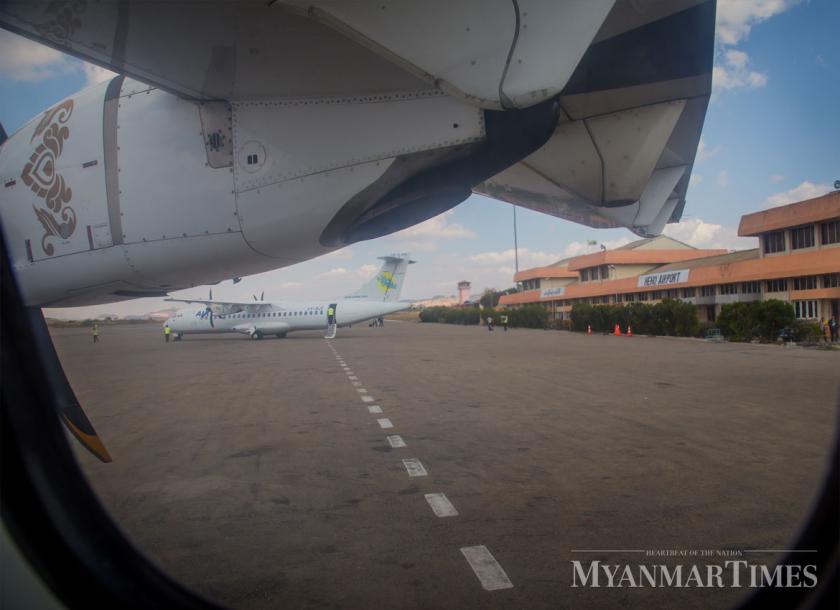
The agreements between the government and private firms are expected to be signed this month for the upgrading of three regional airports to international standards
A raft of agreements between the government and private firms are expected to be signed this month for the upgrading of three regional airports to international standards. The three airports concerned – Heho airport in Shan State, Mawlamyine airport in Mon State and Kawthaung in Tanintharyi Division – will be upgraded to boost regional development as well as improve accessibility. According to Department of Civil Aviation Deputy Director-General U Ye Htut Aung, the first phase of the upgrading works that includes the construction of customs, immigration and quarantine facilities will total US$96 million. Upgrades for Heho airport will cost US$40 million, with US$20 million and US$36 million respectively for Mawlamyine and Kawthaung airports.
เกาะติดข่าว
Copyright © 2014 Business Information Center All Rights Reserved.







